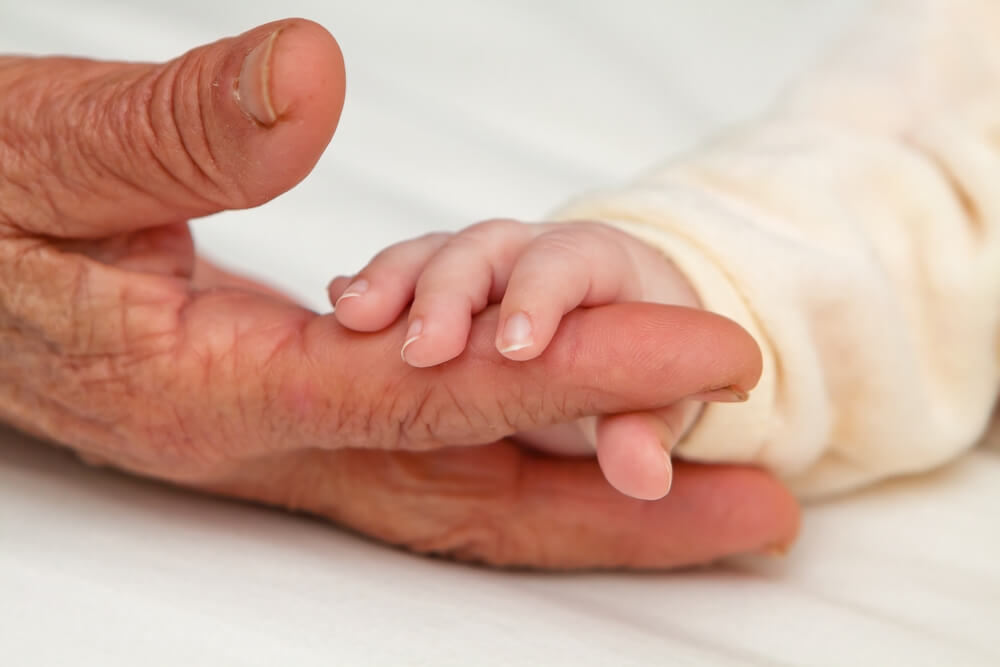
How do you plan for the unexpected, but also the unavoidable? In this article, we provide tips on how to plan your legacy and what kind of documentation is necessary when a loved one passes away.
When a loved one passes away, the last thing you want to do is think about finances. Legacy planning is not easy for many reasons and it may vary from person to person. One of the main reasons is because it’s hard to say goodbye to a family member, a loving friend or partner. Even thinking about it can be difficult. However, legacy is important, especially when wealth has been created through the years.
The main objective of legacy planning can be met through careful and collaborative organization. It’s about increasing financial wealth to pass on to future generations, like a child or a grandchild, for instance. The most challenging part of the process, however, is preparing the family for the financial information they will receive.
The principle regarding legacy planning is not only financial education for the rising generations or storing money to cover further expenses in the future. It also involves the understanding between cross-generational members of the family – the children, the adults, the elderly – on what this wealth actually means for everyone as a whole. Most people postpone this moment, thinking that death may never happen, when, actually, it is all we are sure of as human beings.
This is why we’ve compiled a few tips on how to begin a legacy plan and why it is so important for the future of your family. Read our tips below:
What to take care of when a loved one dies?
Death is not an easy subject for most people to discuss. However, when a loved one passes, those left behind need to take care of many things before they can begin the grieving process. Among what must be done immediately are funeral arrangements, notifying friends, family, and even their employer.
Take the first step by contacting Vital Statistics office in the state which the death occurred, and obtain several copies of the death certificate (you can request it through the funeral home) because you will need to send it to some entities as proof of death. Remember that the copies of the death certificate must be original, not faxed or xeroxed.
As a second step, probate of the estate, will and testimonial matters. If the decedent had any of both, it probably named an executor who is in charge of carrying out their final wishes or documents regarding property distribution. In the case of intestacy – if the deceased person hasn’t left a will – state law can provide a list of the people in family, friends or acquaintances that could serve in this capacity.
Once you receive the death certificates from the Vital Statistics office or the letters that prove testament, contact any insurance company where the deceased had a policy – which includes employer-sponsored plans, banks or credit card companies, mortgage cancellation plans, and many others. Some of these policies only provide benefits (or additional benefits) for its clients in case of accidental death, but this varies from company to company.
It’s also important to notify all savings or investment companies where the person had an account, both individually owned and joint accounts. Otherwise, the account will most likely be frozen once the company has been notified about the death in any other way. Provide the death certificate previously acquired, along with the testament, and set the new account in the name of possible heirs in order to receive the deceased’s assets.

Don’t forget to notify government agencies like the Social Security Administration to start or end benefits. Surviving spouses and children may qualify to receive a one-time death benefit that helps to pay bills (and related expenses) alleviating the burden for grieving loved ones.
This process may seem daunting, and unfortunately it is; but it doesn’t have to be. Imagine an application which houses all the information you need in one single, secure location. Imagine being able to access the above noted items all at once, without the frustration or stress of tracking down individual items, while also adhering to the wishes of your dearly departed.
How to prepare for passing away in the best way?
Nobody wants to make a checklist for the inevitable, but it’s necessary when you have loved ones that depend on you for their financial security. Talking openly about all issues related to death or sickness with them, even when it’s difficult, is the first step to a well-structured game plan.
Leaving your future up to chance is a misstep that too many of us make, especially it comes to death and dying. But many of the things that keep your life running smoothly are the very same things that can be the most difficult to manage in the event of your passing. The top priorities ot address are:
Bills, accounts and money
Handling a deceased person’s banking account is often difficult, especially if they passed unexpectedly and were unable to provide access instructions. This is a big concern for heirs because paying the bills of a person who has already passed away with their signature is considered fraud – as well as using their ATM to withdraw cash, for example.
To spare your loved ones from hassles with Social Security or Power of Attorney, which can give them a big headache, consider saving your documentation and storing easy instructions on where your money is and how to get it.
Also, consider leaving them a will or a trust that make the grieving process less bureaucratic and easier to manage
Trusts and wills
A deceased person can’t decide what happens to their belongings after death unless they have made a will or special arrangements prior to their passing. A will covers any property that is only in your name when you pass away, and it’s a safe decision that’s protected by legal terms. In the case of a will, a court oversees the administration of it and ensures it is valid (so the asset can be distributed the way the deceased wanted).
A will is really important if you have an estate – or a very important asset that must be passed through your loved ones upon death. The first step to make a will is to point one executor (in case, one personal representative whom will carry your wishes after death). Remember that the person that will receive your assets in the future can divide them in whatever way, such as giving everything to a spouse or splitting it among children.

A will is different from a trust. While a will can only be valid after death, a trust can be used to begin distributing property before death (as well as at death or afterwards).
A trust is a legal arrangement through which one person (it can be a bank or a law firm, for instance), called “trustee” holds legal title to property for another person, known as the “beneficiary”. A beneficiary can receive income from the trustee during their lives or receive whatever is left over in the event of their passing. Different from the will, a trust covers only property that has been transferred from the trustee, and usually happens outside the probate, without legal interference.
If you don’t know if you should make a will or a trust, think about the advantages and disadvantages of each. A will, for example, allows you to name a guardian for children or to specify the funeral arrangements. A trust, on the other hand, can be used to plan for disability or to provide savings on taxes.
Funeral Arrangements
Life can be really expensive and full of difficult choices. So can death.
From funeral arrangements to the various associated expenses, the costs can quickly add up.
These are the main concerns of a person while planning funeral arrangements. People often plan their own funeral because it saves the family time and stress during an already difficult situation. With so many questions to answer on top of the pain in burying a loved one, the process can be overwhelming at best.
Legacy planning also involves planning your own funeral arrangements, as difficult as it sounds. A specific amount of money can be saved to cover costs and protect your loved ones from added stress.
Healthcare
Health care is important while planning a legacy. It usually depends on how and what the health insurance plan, provided by a specialized company or sponsored by the government, can provide coverage for. Most insurance plans are generous with “end of life benefits”, such as hospice or medication for comfort, for instance.
However, services like ongoing diagnosis, treatment for advanced or terminal diseases, and even the care facility stays can be expensive (most of them can’t be fully covered by health insurance). That’s why planning your last moments in a hospital, a care facility or even hospice care is really important.
In addition to planning your funeral arrangements, make sure to check with the company responsible for your health insurance, what do they cover in case of an accident or sudden illness? Pay special attention to details such as hospital coverage, treatment and hospice.
Write down your feelings
While we cannot always foresee the events that lead up to our death, we can certainly prepare for them. Too often in life, we lose loved ones without saying the things we want to say. Take time in your life to write down the special last words for those you leave behind. Of course, it doesn’t have to be written on paper. Draft letters in a word document which contain your feelings, last wishes and hopes for their future and save them in a single, secure location.
Remember to be truly honest with your thoughts and words. Decide what you want to be remembered for. You can write down your deepest secrets or simple instructions on how to take care of your beloved dog in case you pass away.
There are applications that keep your letters stored safely encrypted and password protected. They ensure that the content is not sent before death and can even provide guidance when you can’t find the right words to get started.

What kind of documents are important when someone passes?
Let’s talk paperwork.
Some documents and information are needed as soon as possible after a loved one’s death. They will help you and other family members to notify the required people or organizations immediately after he/she passes away, assist you on the funeral arrangements and also on registering the death itself. Below, we’ve provided a checklist:
Basic information of the deceased
From the most important documents to the smaller items you might not have considered:
- Full name, date, and place of birth of the deceased.
- Date and the place of death.
- Marital status (if he/she was married, widowed or divorced) and maiden name, if the deceased was a married woman.
- Occupation of the deceased. If the deceased was a wife or widow, the full name and occupation of the husband will also be required.
- If the deceased was a child, the full name of the mother and father will be required, even if they not married, alive or not.
- Printed documents such as a medical certificate of the cause of death (signed by a doctor), birth certificate, marriage or civil partnership certificate, NHS number or NHS medical card, and organ donor card.
Outstanding Debts
If the deceased had any outstanding debt or expenses, there are documents that need to be presented to the responsible businesses to prove the person’s death (among the death certificate):
- Original death certificate.
- Mortgage statement.
- If there were pending bills to be paid, collect utility or rates bills in the deceased’s name.
- If there are pending loans, you’ll need to collect an educational loan or any other loan statements.
- Other outstanding bills, such as rental agreements, leases, hire purchase agreements or similar.
Possessions
If the deceased had possessions – physical items, estates or investments of your knowledge – remember to collect important documentation, such as:
- The existing valuations of property: jewelry, valuable paintings and similar (also designer items, such as bags or accessories).
- Any existing inventories of assets and estate properties (it can also be home insurance certificates).
- Property deed and leases (real estate for primary, vacation or rental uses).
- The main property and other properties keys.
- Bank and building society account statements, as well as investment statements certificates.
- Personal or company pension account statements.
Can you get access to a deceased’s relative digital data?
If basic preparations before death weren’t made before the loved one’s death, accessing his or her personal devices may be necessary. However, getting into someone’s personal computer to gather important data is not that simple – and not always allowed.
According to the Fiduciary Access to Digital Assets Act, proposed by the Uniform Law Commission, only executors and trustees can have complete access to a decedent’s digital accounts. Because this is not an established law, anyone with the proper credentials can gain access, but without the proper preparations, this can be a difficult task.
Organizing and compiling your digital account information in a single, secure location for your loved ones to access should the need arise can prevent headaches when trying to access online bill pay, banking or email accounts which house important contacts.
That’s why storing information in one single device is really important.
That’s why LifeExec exists. The application allows you to store very important documentation and information with maximum security, and deliver it to your most trusted contacts at the right time. If you have written goodbye letters, you can store them with encrypted security and send them to the ones you love before of after death. The same logic works with life plans, wills, trusts, assets management, passwords checklist, and many others.
You can store and send any information that you would like to tell your family if you were alive. And it all works though an educative process that show you how to do everything quickly and easily.
Would you like to know how LifeExec can work for you Click here and start a 30 free-day trial that doesn’t require any payment method to start!





